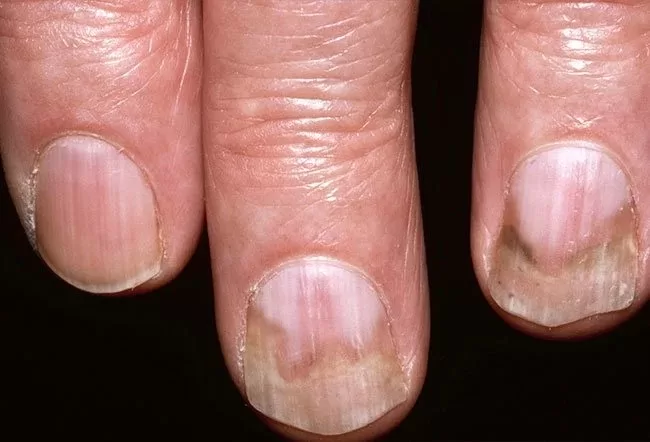Psoriasis is a chronic, multifactorial, inflammatory illness that is marked by the fast growth of keratinocytes in the epidermis and a faster turnover of epidermal cells. It appears that environmental, genetic, and immunologic variables all play a role. The elbows, knees, scalp, lumbosacral areas, intergluteal clefts, and glans penis are familiar places where the disease shows up on the skin. Up to 30% of patients may experience joint pain.
Treatment depends on many things, such as the thickness of the plaque and tartar, the affected areas, whether or not the person has arthritis, and so on.
What exactly is psoriasis
Psoriasis is a skin condition that is caused by your immune system. It can be very uncomfortable and itchy. In most cases, plaque psoriasis is what you’ll be dealing with. It leads to patches of thick, scaly skin. Although a cure is currently unavailable, psoriasis can be controlled with medication. Creams and ointments designed specifically for psoriasis may be recommended by your doctor.

The mystery of psoriasis:
Psoriasis is a chronic inflammatory skin disease caused by an autoimmune reaction. Psoriasis is characterized by patches of thick, discolored skin that are coated in scales. Plaques are the medical term for these thick, scaly patches.
Psoriasis is a skin disease that can come on quickly and for which there is no cure right now.
Different forms of psoriasis include:
The following are some of the several forms of psoriasis:
Psoriasis plaquetosa: This is the most prevalent form of a skin condition known as psoriasis. Plaque psoriasis accounts for approximately 80% to 90% of all cases of psoriasis.
This type of psoriasis manifests itself in the creases and folds of your skin. It results in thin plaques that are devoid of scales.
Guttate psoriasis: This is a type of psoriasis that can develop after a person has had a streptococcal infection that gave them a sore throat. It frequently affects children and young adults and appears as tiny, red, scale-like spots with a drop-shaped appearance.
Pustular psoriasis: This is a type of psoriasis in which pustules appear on top of plaques.
Erythrodermic psoriasis: This is a severe form of psoriasis that affects more than 90% of the skin of the patient. It results in extensive darkening of the skin as well as loss of the skin.
Sebopsoriasis: This is a type of psoriasis that usually shows up on the face and scalp as bumps and plaques covered in a greasy, yellow scale. Psoriasis and seborrheic dermatitis have bred to create this hybrid condition.
Nail psoriasis: When you have psoriasis of the nails, the top layer of skin gets darker, your fingernails and toenails get pits, and the nails look different.
Where exactly on my body Does it show up?
Psoriasis rashes can appear on any area of the skin. Psoriasis is typically found on:
- The use of the elbows and knees
- In particular, the exterior of the face and the roof of the mouth.
- Scalp
- The nails on one’s fingers and toes.
- Genitals.
- from the thigh to the lower back.
- Fingers and toes
Fromiasis affects a limited patch of skin in most people. When the condition is at its worst, the plaques join together to cover a wide area of the body.
To what extent does psoriatic arthritis affect the joints?
Inflammation and discomfort in the joints are symptoms of psoriatic arthritis. Like psoriasis, psoriatic arthritis is an autoimmune disorder that causes the immune system to work and show symptoms in a strange way. One-third of those with a psoriasis diagnosis will also experience the onset of arthritis. Early treatment for psoriatic arthritis can lessen the damage to the joints caused by the disease.
Is psoriasis common, and who is at risk of getting it?
Psoriasis can affect anyone, regardless of age, gender, or color. Psoriasis is a widespread skin disorder that impacts tens of millions of individuals worldwide. Psoriasis affects almost 3 percent of Americans.
Is eczema the same as psoriasis?
There is no connection between psoriasis and eczema. The symptoms of these illnesses, such as skin discoloration, a rash, and itching, are very similar. Plaques of psoriasis form patches of thick skin that are covered with silvery scales. Dry, rough skin is the hallmark of an eczema outbreak. Itching from eczema tends to be worse than it is from psoriasis.
The appearance of psoriasis: what is it like?
Plaques are one of the skin Psoriasis Causes And Symptoms. The appearance of plaques is like this:
- A thickened patch of skin or rash
- Discoloration of the skin is visible on the plaque.
- Scaly or flaky, the plaque peels off readily.
Small bumps are an early symptom of psoriasis. The humps expand, and scales begin to develop on top. The plaque’s outer layer may flake off, but the underlying scales will remain adhered. Scratching a rash might cause the skin’s scales to come loose. In some cases, it has often been observed that this may lead to bleeding. If the rash isn’t stopped, lesions, which are bigger areas of skin damage, could appear. Psoriasis’s symptoms might be extremely subtle or extremely severe.
How can one recognize psoriasis?
Other possible Psoriasis Causes And Symptoms include:
- Skin plaques or a rash
- A skin itch.
- Dry, cracked skin.
- Discomfort in the skin
- Damaged, chipped, or crumbling fingernails
- Hurting joints.
Scratching the plaque may cause tearing of the skin and infection. Bacterial and fungal infections can be fatal. Extreme discomfort, swelling, and a high temperature are all signs of infection. If you’re experiencing any of these signs, see a doctor right away.
Why does psoriasis occur?
Psoriasis is an inflammatory skin condition brought on by an overactive immune system.
The immune system’s job, especially if you have psoriasis, is to eliminate harmful intruders like germs so that you don’t get sick. Your body’s immune system may mistakenly attack healthy tissue. So, your immune system causes inflammation or swelling, which shows up as plaques on the surface of your skin.
New skin cells can take up to 30 days to develop and replace dead skin. When your immune system reacts too strongly, new skin cells take an extra day or two to form. Plaques on the skin that are quickly replaced by new cells cause scaling and peeling.
Psoriasis is a genetic disease. Psoriasis may have a genetic component because it can be passed down from parents to children.

Where do psoriasis flares come from?
Flare-ups of psoriasis happen when the immune system overreacts to a trigger, which could be irritation or allergen. Psoriasis flare-ups manifest themselves in various ways from person to person. Psoriasis flares are commonly triggered by:
- Traumatic emotional strain.
- There has been an outbreak of illness (streptococcal infection).
- Bruises, burns, and other injuries to the skin
- Medications like lithium and beta-blockers
- weather-related temperature changes in the body
Can you spread psoriasis?
Psoriasis, in other words, does not spread from person to person. Contact with a psoriatic rash on another person’s skin will not cause psoriasis in you.
How do people deal with psoriasis?
Psoriasis sufferers have a number of therapy choices at their disposal. Treatments for psoriasis are typically any of the following:
- Creams containing steroids.
- Lip balms for chapped lips
- Medications that inhibit skin cell division (anthralin)
- Hair and body washes and lotions infused with medicine
- ointment with vitamin D3.
- Topical retinoids or vitamin A
Small patches of your rash may respond well to creams or ointments. Other therapies will be required if the rash is widespread or if joint pain is present in addition to the rash. Soreness in one or more joints could indicate arthritis.
Your healthcare provider’s treatment decision will be based on:
- How bad the rash was
- What part of your body has the rash?
- What stage of life are you in right now?
- In general, your health
In the event that conventional therapies for psoriasis fail, what options do you have?
If your psoriasis symptoms don’t go away even after treatment, or if they affect 10% or more of your skin, your doctor may suggest the following:
Inflammation of the skin can be reduced and new skin cell development slowed with the help of light treatment using LED lights of a particular wavelength.
Treatment with psoralen and ultraviolet A (PUVA) involves taking a pill and sitting in the sun at the same time.
While taking retinoids, your psoriasis symptoms may get better, but these vitamin-A-related medicines can have serious side effects, such as problems during pregnancy.
By turning down the body’s immune system, which is done with newer immunotherapy drugs (biologics and small-molecule inhibitors), an autoimmune response can be stopped.
Methotrexate is prescribed for severe psoriasis by medical professionals. potentially harmful to the liver. If you decide to take it, your doctor will run regular blood tests to check on your progress. Liver biopsies, which can be performed periodically, are used to evaluate liver function.
High blood pressure and renal damage have been linked to cyclosporine, a medication that can benefit those with severe psoriasis.
Before you start treatment, it’s important to tell your doctor about any medicines, supplements, or other treatments you’re already getting. issues, if any, Before you start treatment, it’s important to tell your doctor about any medicines, supplements, or other treatments you’re already getting.
What other health issues That may arise
Psoriasis is a skin ailment that causes more than itching, scaling, and skin discoloration in some people. Joint swelling and arthritis are possible outcomes. You may be more likely to experience these complications if you have psoriasis:
- Diabetes.
- Obesity.
- The cholesterol level is too high.
- Strokes.
- Conditions affecting the heart
In order to reduce the risk of problems, your doctor will check your blood pressure often and track your progress in treating your psoriasis. Possible issues can be avoided by
- Taking in a healthy, varied, and balanced diet
- Participating in a regular exercise program
- sleeping enough hours each night
- abstaining from tobacco products.
How quickly will I improve after I finish treatment?
The duration of a psoriasis flare-up might vary from a few weeks to a few months. There are drugs that can help speed up the skin’s recuperation time at the hands of your doctor. Psoriasis is considered to be in remission whenever the symptoms have subsided. that you might have the same symptoms again at some point in the future.
Time spent in remission could range from a few months to several years. If you avoid your “triggers,” or things that make your symptoms come back, you should be able to stay in remission for a long time. ion.
What can I do to keep psoriasis at bay?
Psoriasis cannot be prevented in its entirety at this time. In addition to doing the therapy your doctor tells you to, you can lower your risk by living a healthy lifestyle, taking good care of your skin, and avoiding things that might set off your eczema.
When I get psoriasis, what will happen to my skin?
Symptoms of psoriasis usually show up when a person is in their early 20s, but this time period varies a lot from person to person. You may find that certain things in your environment make your symptoms worse. Avoiding these causes may reduce the frequency of subsequent outbreaks.
Psoriasis can cause irritation, sensitivity, and a loss of confidence. Seek medical attention if these symptoms are making you feel physically or emotionally ill.
Is psoriasis treatable?
Psoriasis is a chronic skin condition for which there is now no treatment. Symptoms of psoriasis, which is a chronic disorder, may come and go over the course of a person’s lifetime. Symptoms can be alleviated with treatment, allowing you to look and feel better.
When is the best time for me to see a doctor?
Check your skin for changes on a regular basis. Make an appointment with your doctor if you notice any changes to your skin or if a rash appears or worsens.
When you have psoriasis of the nails, the top layer of skin gets darker, your fingernails and toenails get pits, and the nails look different.
Where exactly on my body will psoriasis show up?
Psoriasis rashes can appear on any area of the skin. Psoriasis is typically found on:
- The use of the elbows and knees
- In particular, the exterior of the face and the roof of the mouth.
- Scalp
- the nails on one’s fingers and toes.
- Genitals.
- from the thigh to the lower back.
- Fingers and toes
Fromiasis affects a limited patch of skin in most people. When the condition is at its worst, the plaques join together to cover a wide area of the body.

To what extent does psoriatic arthritis affect the joints?
Inflammation and discomfort in the joints are symptoms of psoriatic arthritis. Like psoriasis, psoriatic arthritis is an autoimmune disorder that causes the immune system to work and show symptoms in a strange way. One-third of those with a psoriasis diagnosis will also experience the onset of arthritis. Early treatment for psoriatic arthritis can lessen the damage to the joints caused by the disease.
Is psoriasis common, and who is at risk of getting it?
Psoriasis can affect anyone, regardless of age, gender, or color. Psoriasis is a widespread skin disorder that impacts tens of millions of individuals worldwide. Psoriasis affects almost 3 percent of Americans.
Is eczema the same as psoriasis?
There is no connection between psoriasis and eczema. The symptoms of these illnesses, such as skin discoloration, a rash, and itching, are very similar. Plaques of psoriasis form patches of thick skin that are covered with silvery scales. Dry, rough skin is the hallmark of an eczema outbreak. Itching from eczema tends to be worse than it is from psoriasis.
The appearance: what is it like?
Plaques are one of the skin symptoms of psoriasis. The appearance of plaques is like this:
- A thickened patch of skin or rash
- Discoloration of the skin is visible on the plaque.
- Scaly or flaky, the plaque peels off readily.
Small bumps are an early symptom of psoriasis. The humps expand, and scales begin to develop on top. The plaque’s outer layer may flake off, but the underlying scales will remain adhered. Scratching a rash might cause the skin’s scales to come loose. In some cases, it has often been observed that this may lead to bleeding. If the rash isn’t stopped, lesions, which are bigger areas of skin damage, could appear. Psoriasis’s symptoms might be extremely subtle or extremely severe.
How can one recognize psoriasis?
Other possible symptoms include:
- Skin plaques or a rash
- A skin itch.
- Dry, cracked skin.
- discomfort in the skin
- Damaged, chipped, or crumbling fingernails
- Hurting joints.
Scratching the plaque may cause tearing of the skin and infection. Bacterial and fungal infections can be fatal. Extreme discomfort, swelling, and a high temperature are all signs of infection. If you’re experiencing any of these signs, see a doctor right away.
Why does This infection occur?
Psoriasis is an inflammatory skin condition brought on by an overactive immune system.
The immune system’s job, especially if you have psoriasis, is to eliminate harmful intruders like germs so that you don’t get sick. Your body’s immune system may mistakenly attack healthy tissue. So, your immune system causes inflammation or swelling, which shows up as plaques on the surface of your skin.
New skin cells can take up to 30 days to develop and replace dead skin. When your immune system reacts too strongly, new skin cells take an extra day or two to form. Plaques on the skin that are quickly replaced by new cells cause scaling and peeling.
Psoriasis is a genetic disease. Psoriasis may have a genetic component because it can be passed down from parents to children.
Where do psoriasis flares come from?
Flare-ups of psoriasis happen when the immune system overreacts to a trigger, which could be irritation or allergen. Psoriasis flare-ups manifest themselves in various ways from person to person. Psoriasis flares are commonly triggered by:
- Traumatic emotional strain.
- There has been an outbreak of illness (streptococcal infection).
- Bruises, burns, and other injuries to the skin
- Medications like lithium and beta-blockers
- weather-related temperature changes in the body
Can you spread it?
Psoriasis, in other words, does not spread from person to person. Contact with a psoriatic rash on another person’s skin will not cause psoriasis in you.
How do people deal?
Psoriasis sufferers have a number of therapy choices at their disposal. Treatments for psoriasis are typically any of the following:
- Creams containing steroids.
- Lip balms for chapped lips
- Medications that inhibit skin cell division (anthralin)
- Hair and body washes and lotions infused with medicine
- ointment with vitamin D3.
- Topical retinoids or vitamin A
Small patches of your rash may respond well to creams or ointments. Other therapies will be required if the rash is widespread or if joint pain is present in addition to the rash. Soreness in one or more joints could indicate arthritis.
what options do you have?
If your psoriasis symptoms don’t go away even after treatment, or if they affect 10% or more of your skin, your doctor may suggest the following:
Inflammation of the skin can be reduced and new skin cell development slowed with the help of light treatment using LED lights of a particular wavelength.
Treatment with psoralen and ultraviolet A (PUVA) involves taking a pill and sitting in the sun at the same time.
While taking retinoids, your psoriasis symptoms may get better, but these vitamin-A-related medicines can have serious side effects, such as problems during pregnancy.
By turning down the body’s immune system, which is done with newer immunotherapy drugs (biologics and small-molecule inhibitors), an autoimmune response can be stopped.
Methotrexate is prescribed for severe psoriasis by medical professionals. potentially harmful to the liver. If you decide to take it, your doctor will run regular blood tests to check on your progress. Liver biopsies, which can be performed periodically, are used to evaluate liver function.
High blood pressure and renal damage have been linked to cyclosporine, a medication that can benefit those with severe psoriasis.
Before you start treatment, it’s important to tell your doctor about any medicines, supplements, or other treatments you’re already getting. issues, if any, Before you start treatment, it’s important to tell your doctor about any medicines, supplements, or other treatments you’re already getting.
What other health issues may arise from psoriasis?
Psoriasis is a skin ailment that causes more than itching, scaling, and skin discoloration in some people. Joint swelling and arthritis are possible outcomes. You may be more likely to experience these complications if you have psoriasis:
- Diabetes.
- Obesity.
- The cholesterol level is too high.
- Strokes.
- Conditions affecting the heart
- In order to reduce the risk of problems, your doctor will check your blood pressure often and track your progress in treating your psoriasis. Possible issues can be avoided by
- Taking in a healthy, varied, and balanced diet
- Participating in a regular exercise program
- Sleeping enough hours each night
- Abstaining from tobacco products.
How quickly will my health improve after I finish treatment?
The duration of a psoriasis flare-up might vary from a few weeks to a few months. There are drugs that can help speed up the skin’s recuperation time at the hands of your doctor. Psoriasis is considered to be in remission whenever the symptoms have subsided. that you might have the same symptoms again at some point in the future.
Time spent in remission could range from a few months to several years. If you avoid your “triggers,” or things that make your symptoms come back, you should be able to stay in remission for a long time. ion.
What can I do to keep psoriasis at bay?
Psoriasis cannot be prevented in its entirety at this time. In addition to doing the therapy your doctor tells you to, you can lower your risk by living a healthy lifestyle, taking good care of your skin, and avoiding things that might set off your eczema.
How does it affect my skin?
Symptoms of psoriasis usually show up when a person is in their early 20s, but this time period varies a lot from person to person. You may find that certain things in your environment make your symptoms worse. Avoiding these causes may reduce the frequency of subsequent outbreaks.
Psoriasis can cause irritation, sensitivity, and a loss of confidence. Seek medical attention if these symptoms are making you feel physically or emotionally ill.

Is psoriasis treatable?
Psoriasis is a chronic skin condition for which there is now no treatment. Psoriasis Causes And Symptoms, which is a chronic disorder, may come and go over the course of a person’s lifetime. Symptoms can be alleviated with treatment, allowing you to look and feel better.
You can reduce your stress levels by meditating, working out, or consulting a mental health expert.
When is the best time for me to see a doctor?
Check your skin for changes on a regular basis. Make an appointment with your doctor if you notice any changes to your skin or if a rash appears or worsens.
Disclaimer: The author’s views are his or her own. The facts and opinions in the article have been taken from various articles and commentaries available in the online media and Eastside Writers does not take any responsibility or obligation for them.
Note: Contact our Writers at www.eastsidewriters.com for writing Blogs/Articles on any niche. We have experts in various domains from Technology to Finance and from Spirituality to Lifestyle and Entertainment.







Pingback: The Wholesome Multiple Benefits Of Kutki Can Make You Live A Longer Healthy Life - Eastside Writers
Pingback: Chronic Inflammation May Be Challenging- Know The Causes And Its Remedy - Eastside Writers
Pingback: Never Ignore Penis Sores And Blisters As It Can Be Fatal - Eastside Writers
Pingback: Ashwagandha - The Vitalizing Herb For Your Body's Natural Rejuvenation
Pingback: The autoimmune disease Systemic Lupus and its serious consequences - Eastside Writers
Pingback: The Benefits and Risks of Lemongrass: A Comprehensive Guide - Eastside Writers